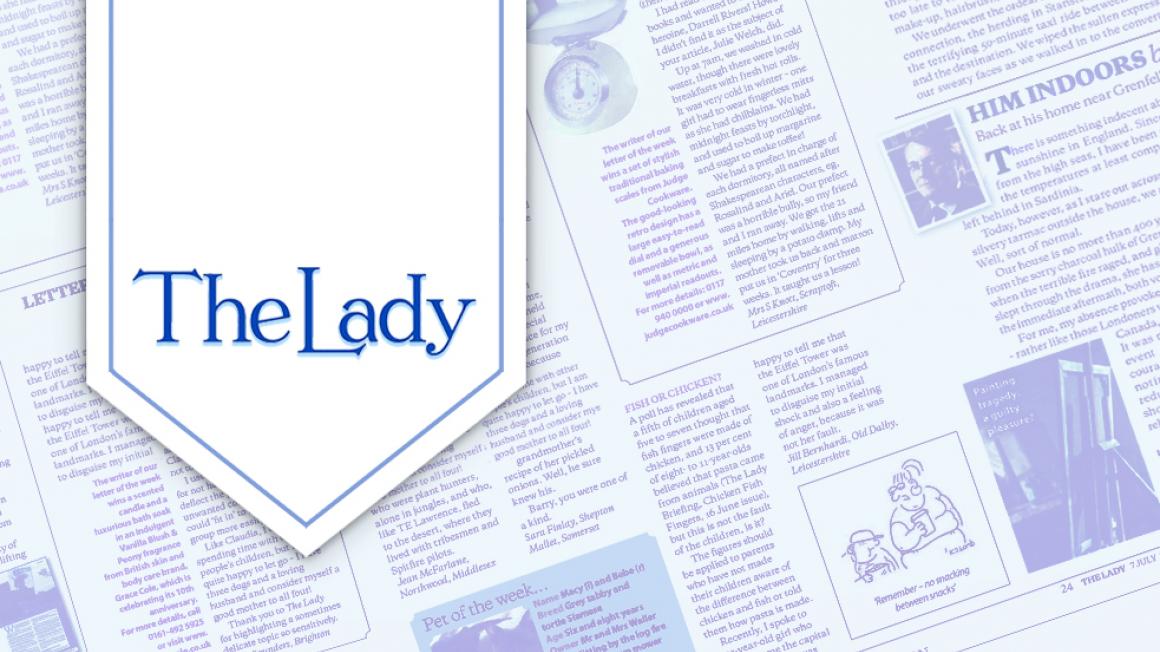The Lady Guide to Modern Manners: 5 October
What do you think of this? I was on the Eurostar in Standard Premier, which isn't called First Class. A lady left her seat and disappeared for ages. Everyone thought she'd got off and the attendant told another passenger to sit in her seat. But she came back, and was furious, even though the person immediately vacated her seat. She summoned the minion and squawked over and over again: 'It's not what you expect in first class.' It was quite funny for a while, but then...
Vera Michelmore, Bournemouth
Dear Vera,
I suppose the main thing was to advertise her station in life, which might have been more worthwhile before an audience of second class passengers. It's a shame, because in Britain, for complex reasons, some of them good, we don't do anything like enough complaining – or, should I say, providing honest, constructive feedback. Exhibitionists such as your fellow passenger give complaining a bad name.
With my marvellous grasp of history, I trace it back to the 1980s. The new 'service culture' of that decade swept away the long suffering mentality of the previous decades. Which was all well and good, but a hard-bitten minority who complain about everything and always want money off, or back, had a field day. Now, post banking crisis, it's all rather
different. Let's hope businesses will answer back.
If you have to complain, be discreet about it. In restaurants and hotels the conspicuous complainer, however justified, might spoil the enjoyment of others who have no complaint.
Another unattractive scenario, often found in hotel lobbies, is the pompous, over-elaborate quibble/ concern, resembling an office 'presentation', or a reprimand of an employee in the modern manner, ie, huge emphasis on the positive, suggestions for future improvement etc, all leading up to: 'Could you fix the bedside light?'
The worst of this is: others, trying to check in or out, have got to listen. How many people manufacture complaints just so they can get money off, money back, vouchers, upgrades? Be it on their consciences.
Nobody likes to be caught out by terms and conditions, which none of us looks at until it's too late. But, especially when dealing with a small business, only dispute if the penalties are outrageous (€300 charged by a hire-car company for a flat tyre, for instance. Yes, that's my story) or unclear wording, which it often is. Fundamentally, it is dishonourable to renege on an agreement.
As a nation, are we yet to master the art of the mild complaint? When the waiter says, 'How was your meal?' we are still too polite to say, 'That lettuce was just a weeny bit tired, but I'll live and I don't want any money back.'
Please send your questions to Thomas.blaikie@lady.co.uk or write to him at The Lady, 39-40 Bedford Street, London WC2E 9ER.
WHAT TO DO ABOUT... Using the right name?
I'm thinking of Princess Diana who was tabloid-ised as 'Di'. Once she said, 'It's Diana, actually,' when shouted at by the men of the press. An abbreviation is often assumed when there isn't one. It may not be any grandeur or nose-in-the air.It's just not their name. I know a Christopher who is never 'Chris'. The maddening thing is sometimes a person is introduced as 'Ernest' but it seems everyone calls him 'Ernie'.
You don't know what to do. Your manner of address could be excessively formal. In this last case, you could avoid calling this man anything at all and either hope never to see him again, or await developments.
Really, it's very useful to have the name the person wishes to be addressed by from the start.
Don't abbreviate unless there is definite encouragement to do so. Our editor, for instance, was launched into my world as 'Matt', which is very modernsounding. We only address him as 'Matthew' when there's call to be firm.
If people call you Liz when actually you're Elizabeth, I wouldn't encourage the correct direct. But arrange a frenzy of people addressing you by the right name and hope the penny will drop.



